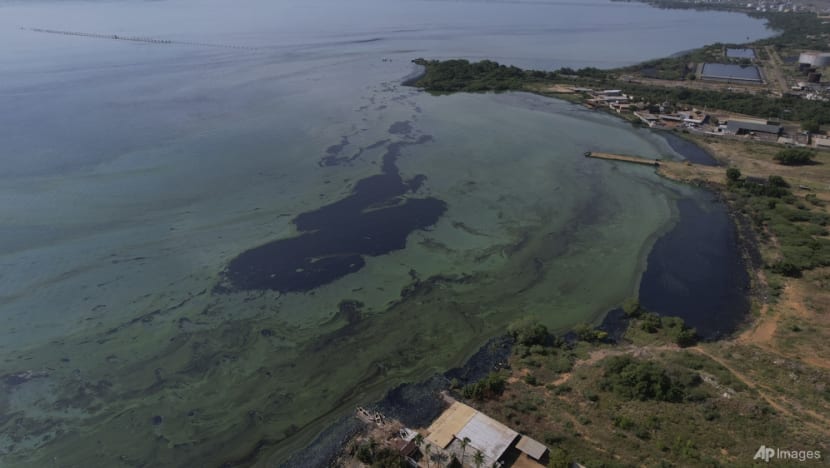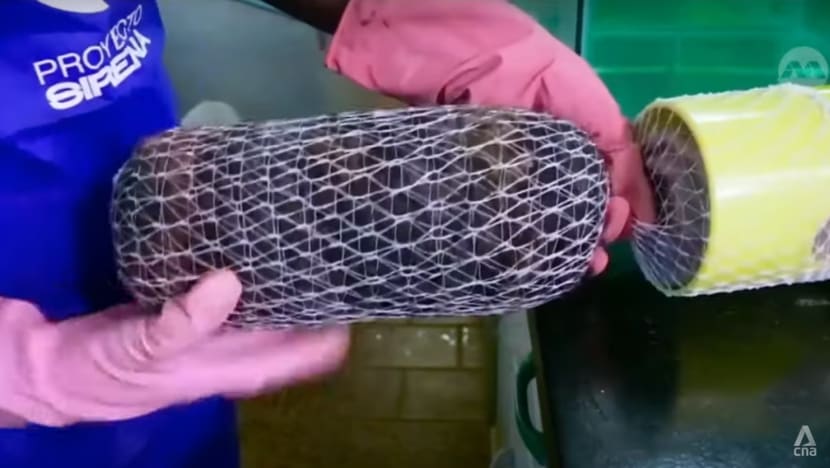How are a group of young Venezuelans using human and animal hair to fight oil spills?
The waters of Lake Maracaibo were once crystal clear but are now filled with green algae, river sediment and crude oil.


This audio is generated by an AI tool.
MARACAIBO, Venezuela: One of South America’s largest lakes is dying from oil pollution – but help is on the way.
A team of young Venezuelan environmentalists has come up with a hair-raising solution to clean up the contamination at Lake Maracaibo.
Project Mermaid, an eco-friendly initiative named after the mythological creature that symbolises life and fertility within the ocean, is using human and animal hair to combat oil spills.
While this sustainable and eco-friendly method is a novelty in Venezuela, at least 23 countries have used hair in oil spills since 1998.
DAMAGE CAN BE SEEN FROM SPACE
Lake Maracaibo, located in northwestern Venezuela, is also the country’s largest lake and is spread over 13,000 sq km.
Its waters, which were once crystal clear, are now filled with green algae, river sediment and crude oil. The damage is so extensive that it can be seen from space.
The country’s oil facilities are to blame, with leakage from poorly maintained oil pipes impacting not only the lake but also its wildlife and the nearby communities.
A local environmentalist non-governmental organisation has estimated that between 500 and 1,000 barrels of oil end up in Lake Maracaibo daily.
With such frequent oil spills that can cover thousands of square metres, some of the most affected people are local fishermen like Orlando Sanchez.
Shrimp fishing has been his main source of income for almost five decades, but oil residue has damaged his nets and threatened his livelihood.
“Every time we sail to fish, we can’t work. The oil doesn’t let us work, no matter what net you use. This is ugly,” he told CNA.
CLEAN UP EFFORTS
Last June, the Venezuelan government announced a campaign to clean up the lake by sending machinery and teams to work on the polluted shores. But environmentalist experts say those efforts have been insufficient.
Now, Venezuelan citizens – like those in Project Mermaid – are coming up with alternatives to rescue their lake.
The group teamed up with a United States non-profit, Matter of Trust, to use hair in removing oil from the waters.
It has developed and manufactured its own oil-sucking devices using both human and animal hair, which can soak up around five times its weight in oil.
Hair is mostly made of keratin, a protein that allows fibres to absorb and stick to the oil’s surface.

Initial results from the oil-sucking devices indicated that about two pounds of hair can soak up between 11 to 17 pounds of oil.
“It’s different from other plastic devices or hydrocarbon derivatives that will also become waste when the oil is removed. In the case of hair, it is a biodegradable, natural material that is readily available,” said Project Mermaid’s general coordinator Selene Estrach.
The goal is to release about 3,000 nets into the lake by the end of next year.
In Venezuela’s capital Caracas, the project has a network of volunteers supporting the cause.
Around 600 beauty salons have donated the hair they collect each month, while Venezuelans like Andrea Chirinos, a 20-year-old student, wait in line for hours to donate their hair.
“I thought it was a good idea to collect hair because it’s a material that we all have, in small or large amounts,” she said.
“And with just a small contribution from each person, we can achieve something bigger.”
















